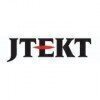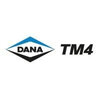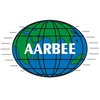Detailing Engineer Trainee
10+ Detailing Engineer Trainee Interview Questions and Answers

Asked in Escorts Kubota Limited

Q. What is your skillls?, what is your experties? , what kind of knowledge you have about paintshop &industry?, can you handle the msnpower & production?
I have expertise in paintshop operations and production management. I am skilled in using MSNpower and have knowledge of industry standards.
Expertise in paintshop operations
Skilled in using MSNpower
Knowledge of industry standards
Experience in production management
Ability to handle production processes
Familiarity with safety regulations
Strong attention to detail
Effective communication skills

Asked in ReNew

Q. What type of transformer is used to convert 1100 volts to 400 volts?
To convert 1100 volts to 400 volts, a step-down transformer is used, which reduces voltage levels efficiently.
A step-down transformer decreases voltage from a higher level to a lower level.
For example, a transformer with a turns ratio of 11:4 will convert 1100V to 400V.
These transformers are commonly used in power distribution systems.
They ensure safe voltage levels for residential and industrial applications.
Detailing Engineer Trainee Interview Questions and Answers for Freshers

Asked in Pennar Industries

Q. What is the usage of the purge command in AutoCAD?
The purge command in AutoCAD is used to remove unused objects from the drawing to reduce file size and improve performance.
The purge command can be accessed by typing 'PURGE' in the command line.
Unused blocks, layers, linetypes, and other objects can be removed using the purge command.
Purging can help clean up the drawing and make it more efficient.
Example: Typing 'PURGE' in the command line and selecting the objects to be purged.

Asked in ReNew

Q. Which transformer is used in an inverter to convert AC to DC?
Inverters use a transformer to convert AC to DC, typically a step-down transformer for voltage regulation.
Inverters often use a transformer to step down AC voltage before conversion.
A common type is the isolation transformer, which provides safety and voltage regulation.
Examples include using a transformer in solar inverters to convert solar panel AC output to usable DC.
Transformers help in reducing voltage levels, making it safer for DC applications.

Asked in JTEKT

Q. What is a transformer and what are its working principles?
A transformer is an electrical device that transfers electrical energy from one circuit to another through electromagnetic induction.
Transformers are used to increase or decrease the voltage of an alternating current (AC) power supply.
They work on the principle of electromagnetic induction, where a changing magnetic field induces a voltage in a coil of wire.
Transformers consist of two coils of wire, called the primary and secondary coils, wrapped around a magnetic core.
The pr...read more

Asked in KEC International

Q. Where in India is the MSL measurement taken from?
Mean Sea Level (MSL) in India is measured from the Indian Ocean's average sea level, primarily at the Mumbai tide gauge.
MSL is based on the average sea level over a long period, typically 19 years.
The primary reference point for MSL in India is the tide gauge at Mumbai.
MSL is crucial for various applications, including navigation, construction, and flood management.
Other coastal cities like Chennai and Kolkata also have tide gauges contributing to MSL data.

Asked in Force Motors

Q. How many inches are in one foot?
1 foot is equal to 12 inches.
1 foot = 12 inches
To convert feet to inches, multiply by 12
For example, 2 feet is equal to 24 inches (2 x 12)

Asked in Medha Servo Drives

Q. Draw the diagram of a center-tapped half-wave rectifier.
A center tapped half wave rectifier is a type of rectifier circuit that uses a center tapped transformer to convert AC to pulsating DC.
The center tapped half wave rectifier consists of a transformer with a center tap on the secondary winding, a diode, and a load resistor.
During the positive half cycle of the input AC signal, the diode conducts and current flows through the load resistor in one direction.
During the negative half cycle, the diode blocks the current flow, result...read more
Share interview questions and help millions of jobseekers 🌟


Asked in Cummins

Q. What is a turbocharger?
A turbocharger is a device that increases the efficiency and power output of an internal combustion engine by forcing extra air into the combustion chamber.
Turbochargers use exhaust gases to spin a turbine, which in turn drives a compressor to force more air into the engine.
This extra air allows more fuel to be burned, resulting in increased power output without the need for a larger engine.
Turbochargers are commonly used in performance cars and diesel engines to improve effi...read more

Asked in Cummins

Q. Which gases are present in engine exhaust?
The gases in engine exhaust typically include carbon dioxide, carbon monoxide, nitrogen oxides, hydrocarbons, and particulate matter.
Carbon dioxide (CO2) is a greenhouse gas produced during combustion.
Carbon monoxide (CO) is a toxic gas formed by incomplete combustion.
Nitrogen oxides (NOx) are pollutants that contribute to smog and acid rain.
Hydrocarbons are unburned fuel molecules that can react in the atmosphere to form ozone.
Particulate matter consists of tiny particles th...read more

Asked in Pennar Industries

Q. What is orthographic projections
Orthographic projections are 2D representations of a 3D object using multiple views from different angles.
Orthographic projections show the object from the front, top, and side views separately.
These views help in accurately representing the shape and dimensions of the object.
Commonly used in engineering and architecture for technical drawings and blueprints.
Examples include isometric, top, front, and side views of a building or machine.

Asked in Tata Motors

Q. What is a transformer?
A transformer is an electrical device that transfers electrical energy between circuits through electromagnetic induction.
Transforms voltage levels: Can step up (increase) or step down (decrease) voltage.
Used in power distribution: Essential for transmitting electricity over long distances.
Types: Includes step-up transformers (e.g., in power plants) and step-down transformers (e.g., in homes).
Efficiency: Typically over 95%, minimizing energy loss during the voltage transforma...read more

Asked in Dana TM4

Q. What is the working principle of a motor?
Electric motors convert electrical energy into mechanical energy using electromagnetic principles.
Electric motors operate on the principle of electromagnetism.
When current flows through a coil in a magnetic field, it experiences a force (Lorentz force).
The interaction between the magnetic field and the current creates rotational motion.
Types of motors include AC motors (e.g., induction motors) and DC motors (e.g., brushed and brushless).
Example: A simple DC motor uses a commu...read more

Asked in KEC International

Q. What is MSL?
MSL stands for Mean Sea Level, a reference point for measuring elevation and depth on Earth.
MSL is used in cartography and navigation to define elevations.
It serves as a baseline for measuring the height of geographical features.
For example, Mount Everest's height is often given as 8,848 meters above MSL.
MSL can vary due to factors like tides, atmospheric pressure, and ocean currents.

Asked in ReNew

Q. What does OMS low mean?
OMS (Order Management System) is a software tool that manages order processing and fulfillment in businesses.
OMS streamlines order processing from receipt to delivery.
It helps track inventory levels and manage stock efficiently.
Examples include systems used by e-commerce platforms like Amazon.
OMS can integrate with other systems like CRM and ERP for better data flow.
It enhances customer satisfaction by providing real-time order updates.

Asked in Aarbee Structures

Q. Shear force bending moment
Shear force and bending moment are key concepts in structural engineering, representing internal forces in a beam.
Shear force is the force perpendicular to the beam's longitudinal axis, causing it to shear or slide.
Bending moment is the internal moment that causes a beam to bend or flex.
Shear force and bending moment diagrams are used to visualize the distribution of these forces along the length of a beam.
Calculating shear force and bending moment is essential for designing ...read more
Asked in JBCO Powertech

Q. Define Ohm's Law.
OHM's law states that the current flowing through a conductor is directly proportional to the voltage applied across it, and inversely proportional to the resistance of the conductor.
Current (I) is directly proportional to Voltage (V) and inversely proportional to Resistance (R): I = V/R
It helps in calculating the relationship between voltage, current, and resistance in an electrical circuit.
It was named after German physicist Georg Simon Ohm who formulated the law in 1827.

Asked in Fleet Management

Q. Unit of capacitance
The unit of capacitance is farad (F).
The unit of capacitance is named after Michael Faraday.
1 farad is equal to 1 coulomb per volt.
Commonly used prefixes for capacitance include microfarad (uF) and picofarad (pF).

Asked in Reinforced Earth

Q. What is RL?
RL stands for Reinforcement Learning, a type of machine learning focused on training agents to make decisions through rewards.
Reinforcement Learning (RL) involves training algorithms to make sequences of decisions.
Agents learn by receiving rewards or penalties based on their actions, e.g., a robot learning to navigate a maze.
Common applications include game playing (like AlphaGo) and robotics.
RL uses concepts like exploration vs. exploitation to balance learning new strategie...read more
Interview Questions of Similar Designations
Interview Experiences of Popular Companies






Calculate your in-hand salary
Confused about how your in-hand salary is calculated? Enter your annual salary (CTC) and get your in-hand salary


Reviews
Interviews
Salaries
Users










